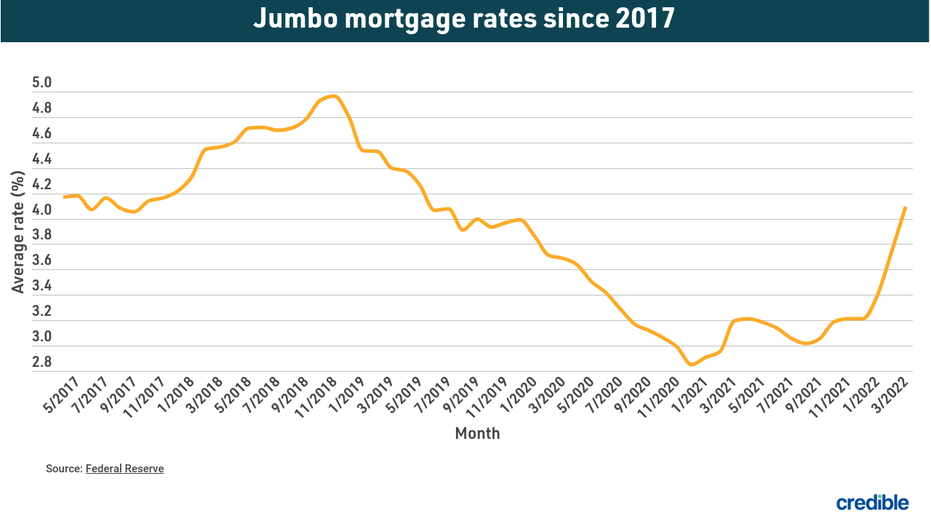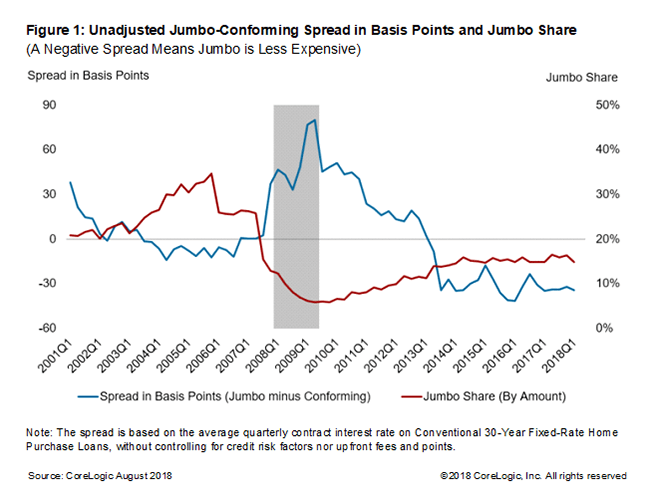Jumbo Loan: Tailored Home Loan Solutions for High-Income Debtors
Jumbo Loan: Tailored Home Loan Solutions for High-Income Debtors
Blog Article
The Effect of Jumbo Fundings on Your Financing Alternatives: What You Need to Know Prior To Applying
Jumbo financings can play a critical function in forming your funding choices, particularly when it comes to acquiring high-value buildings. Recognizing the equilibrium in between the benefits and difficulties posed by these loans is important for possible debtors.
Understanding Jumbo Financings
Recognizing Jumbo Loans calls for a clear grasp of their unique features and requirements. Big fundings are a sort of home mortgage that surpasses the adjusting finance limits developed by the Federal Real Estate Money Agency (FHFA) These limits vary by area yet usually cap at $647,200 in a lot of locations, making jumbo financings necessary for financing higher-priced buildings.
Among the specifying functions of jumbo car loans is that they are not eligible for purchase by Fannie Mae or Freddie Mac, which causes stricter underwriting standards. Consumers should usually show a higher credit history, typically above 700, and offer considerable paperwork of income and possessions. Additionally, loan providers may call for a bigger deposit-- commonly 20% or even more-- to alleviate threat.
Rates of interest on big financings can be slightly greater than those for adhering fundings because of the enhanced threat thought by the loan provider. However, the absence of personal home loan insurance (PMI) can offset a few of these expenses. Understanding these elements is crucial for prospective customers, as they significantly affect the terms and feasibility of protecting a big loan in today's competitive property market.
Benefits of Jumbo Lendings
Jumbo finances supply distinct advantages for buyers looking for to purchase high-value residential properties that surpass traditional lending limits. Among the main benefits of big financings is their ability to fund bigger amounts, permitting purchasers to get homes in costs markets without the constraints enforced by conforming funding limitations - jumbo loan. This versatility allows property buyers to view a wider variety of buildings that may better fit their choices and needs
Additionally, big car loans commonly come with affordable interest rates, specifically for debtors with solid credit score accounts. This can lead to substantial financial savings over the life of the financing, making homeownership a lot more economical in the lengthy run. Additionally, big fundings can be customized to match specific economic situations, supplying various terms and amortization options that align with the borrower's objectives.

Challenges of Jumbo Finances
Browsing the complexities of jumbo finances provides a number of challenges that prospective consumers should understand before proceeding. One significant hurdle is the rigorous lending standards imposed by banks. Unlike adhering fundings, jumbo finances are not backed by government-sponsored business, leading lending institutions to adopt more extensive criteria. This typically consists of higher credit report needs and substantial documents to validate income and assets (jumbo loan).
Additionally, big fundings usually feature higher rate of interest prices contrasted to conventional financings. This elevated cost can considerably affect regular monthly payments and general price, making it important for borrowers to thoroughly analyze their monetary scenario. In addition, the down settlement requirements for jumbo lendings can be significant, frequently varying from 10% to 20% or even more, which can be an obstacle for many prospective homeowners.
An additional challenge lies in the minimal availability of big car loan products, as not all lending institutions use them. This can lead to a reduced pool of alternatives, making it essential for consumers to perform look at more info thorough research study and possibly seek specialized lenders. On the whole, recognizing these obstacles is crucial for any individual taking into consideration a jumbo lending, as it makes sure informed decision-making and far better economic preparation.
Qualification Criteria
For those thinking about a jumbo funding, meeting the certification standards is a crucial step in the application procedure. Unlike standard finances, jumbo loans are not backed by federal government agencies, resulting in more stringent demands.
Firstly, a strong credit history is crucial; most loan providers call for best site a minimum score of 700. A greater score not only increases your opportunities of approval yet might likewise safeguard far better rate of interest. In addition, debtors are generally expected to show a substantial earnings to guarantee they can conveniently take care of greater month-to-month payments. A debt-to-income (DTI) ratio listed below 43% is normally preferred, with reduced proportions being a lot more favorable.
Deposit requirements for jumbo finances are additionally significant. Consumers should anticipate taking down a minimum of 20% of the residential property's acquisition price, although some loan providers may use options as low as 10%. Demonstrating money books is essential; lenders often call for proof of sufficient fluid possessions to cover numerous months' worth of mortgage repayments.
Contrasting Funding Options
When assessing financing alternatives for high-value buildings, comprehending the differences in between different loan kinds is crucial. Big finances, which go beyond conforming financing limits, typically come with more stringent credentials and higher interest rates than conventional finances. These lendings are not backed by government-sponsored ventures, which boosts the lender's threat and can lead to a lot more strict underwriting criteria.
On the other hand, traditional fundings provide even more adaptability and are typically easier to get for debtors with strong credit score profiles. They more information may include lower rate of interest and a wider range of alternatives, such as dealt with or adjustable-rate home loans. In addition, government-backed fundings, like FHA or VA lendings, offer opportunities for reduced deposits and even more forgiving debt demands, though they also enforce restrictions on the finance amounts.

Conclusion
Finally, big finances existing both opportunities and obstacles for possible property buyers seeking funding for high-value homes. While these finances enable bigger amounts without the burden of exclusive mortgage insurance policy, they come with strict certification needs and prospective disadvantages such as higher rate of interest rates. An extensive understanding of the obstacles and advantages associated with jumbo loans is vital for making notified decisions that align with lasting monetary goals and purposes in the property market.

Report this page